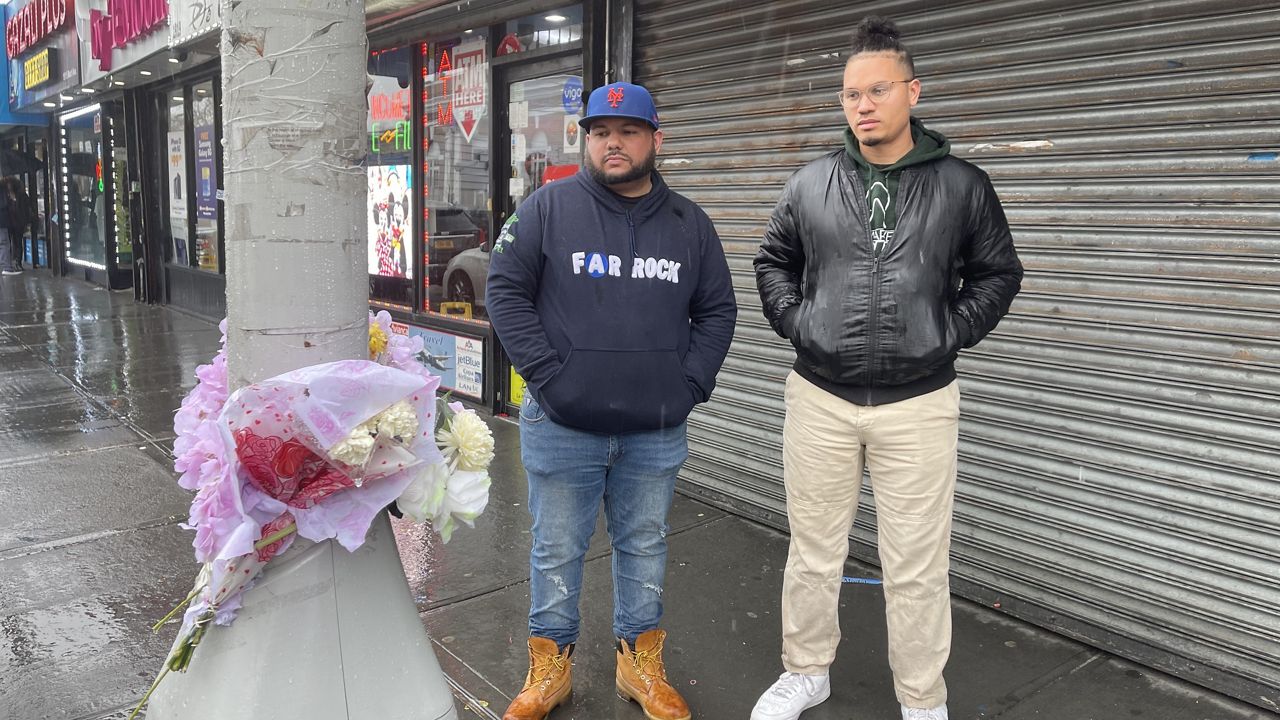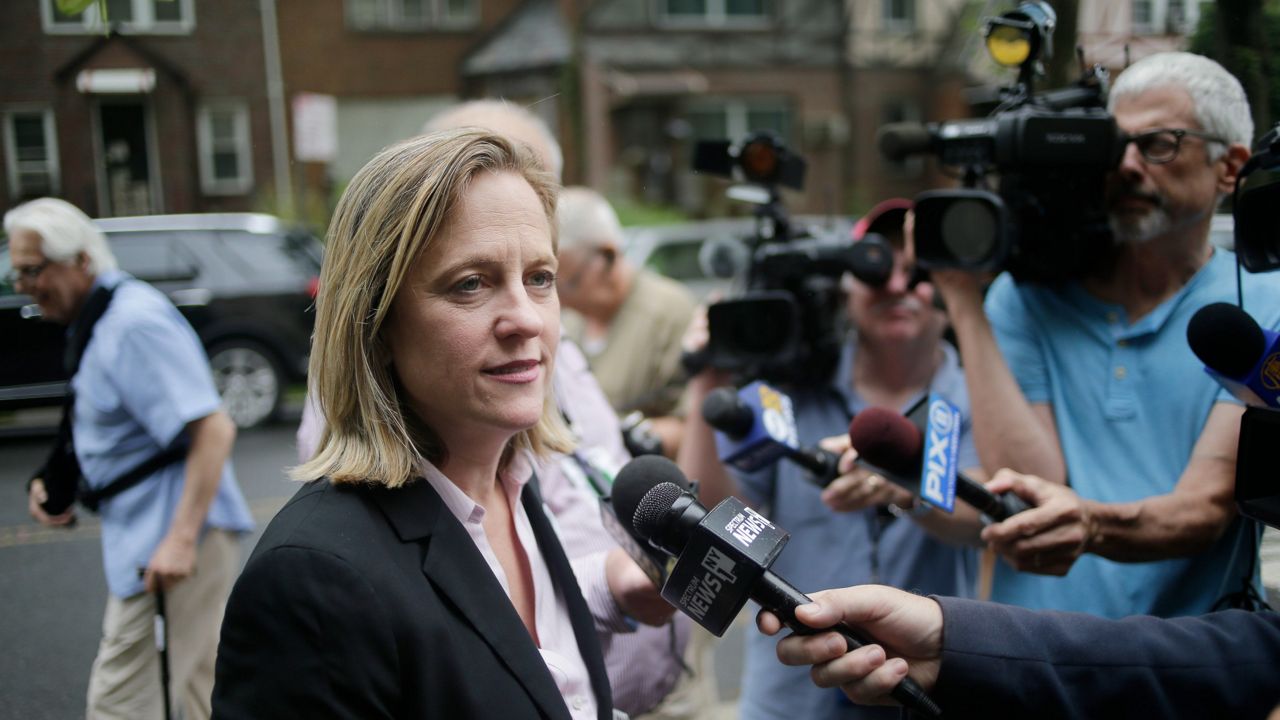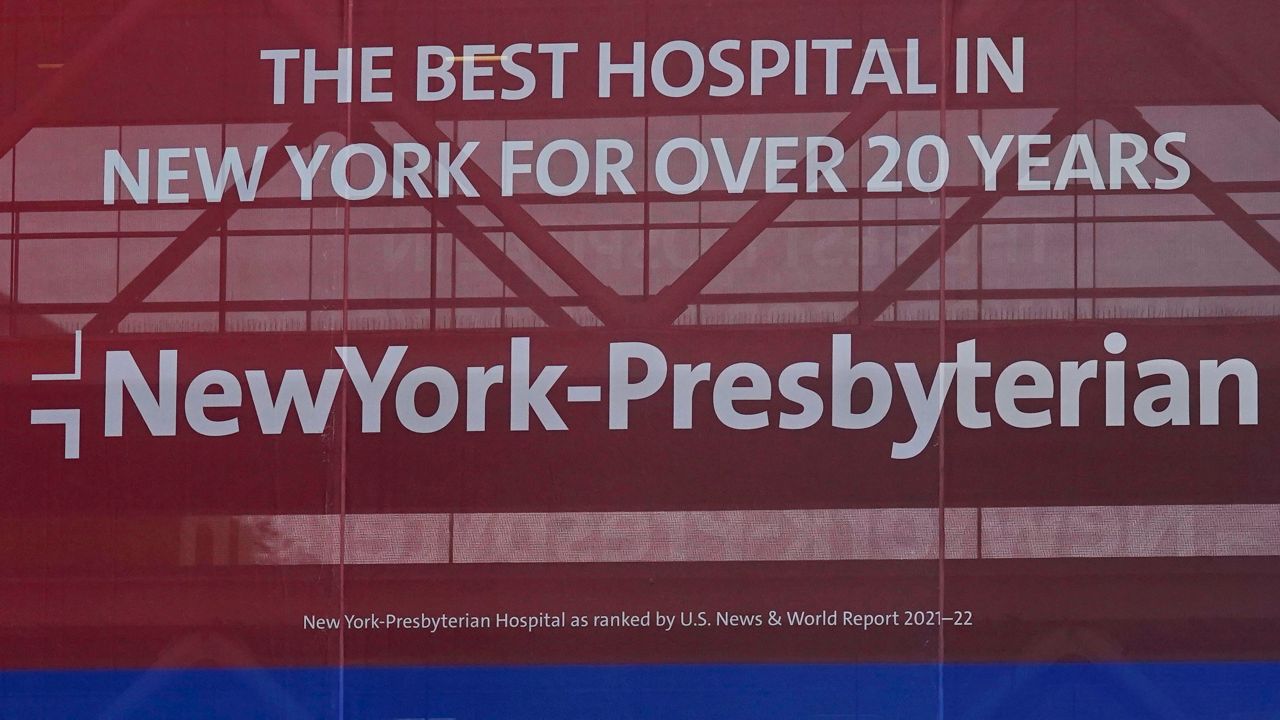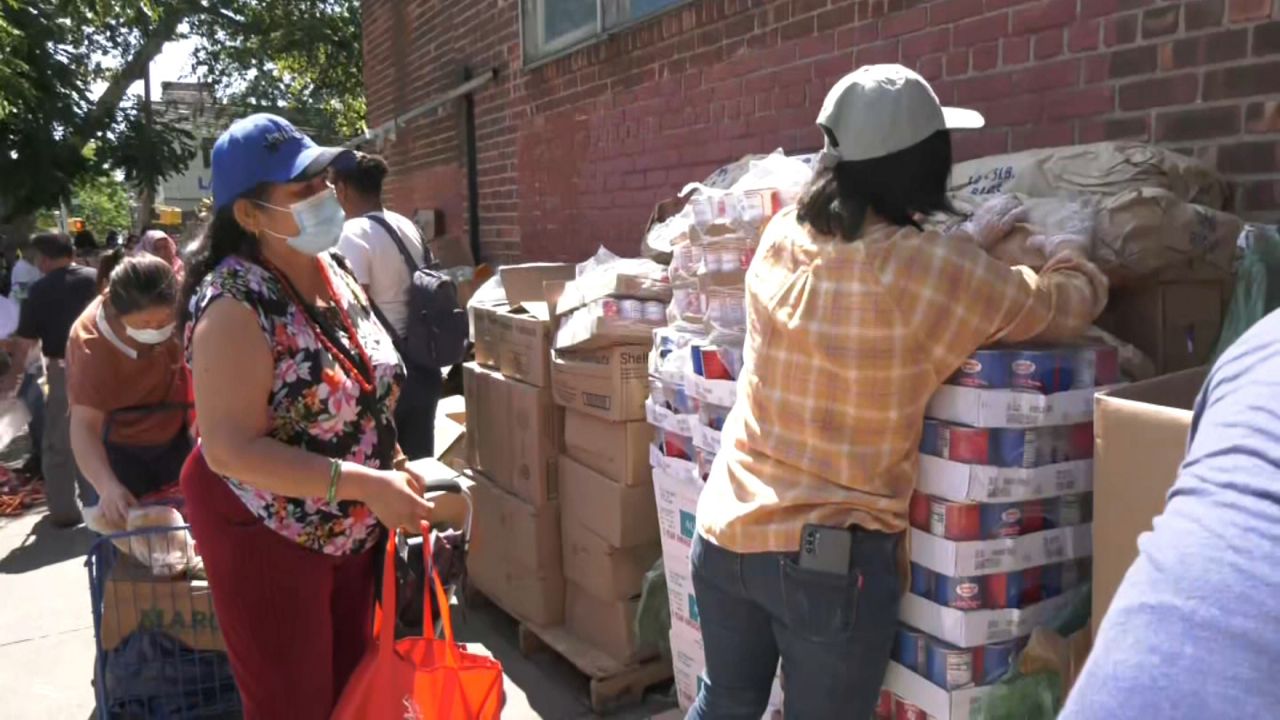A watercolor painting Kevin Wilson created provides him with a sense of peace. He says abstract art helps ground him during difficult periods of his life.
"I feel good. My paint makes me feel good," Wilson, a patient at Catholic Charities Brooklyn and Queens Behavioral Health Clinic in Jackson Heights, said.
This serenity has taken years of work to achieve. Up until 20 years ago, he says his life was going well.
With a master's degree in information systems, he moved from Queens to Maryland for a job, but started to lose his hearing and heard voices in his head.
"I started hearing more and more voices. It started to become a matter of life or death," Wilson said.
He moved back to Queens to stay close to his parents, and was hospitalized several times with hallucinations. Doctors diagnosed him with schizophrenia.
"The voices will tell me to commit suicide, and that's something that I don't believe in. I'm a very special person," he said.
Doctors told him he won't be able to work or have a normal lifestyle, even though he's undergoing treatment.
The city says about one-third of the more than 60,000 adult New Yorkers with diagnosed schizophrenia, schizoaffective disorder or psychosis report unmet mental health needs. That means around 20,000 New Yorkers are not being treated.
This past month, Mayor Eric Adams announced an allocation of $650 million to create 900 so-called "safe haven" beds, an alternative to the city's dormitory-style shelters, as well as 100 new beds for homeless children and teens.
Gov. Kathy Hochul earlier this month, meanwhile, said she's putting $1 billion toward supporting that population and expanding hospitals' power to commit people into treatment - potentially even against their will.
While both politicians say these efforts are meant to protect people from those with mental illness, Ruth Lowenkron, director of disability justice at New York Lawyers for the Public Interest, says it should be the other way around.
"The statistics support the opposite, that people with mental health diagnosis are far more likely to be the victims of crime," she said.
Lowenkron says this population is in need of supportive services and should not be feared.
"Coordination is really what's key," she said.
Social worker Megan Evans, who works at Catholic Charities Brooklyn and Queens Behavioral Health Clinic in Jackson Heights, says the clinic is trying to change the stigma behind mental health.
"A lot of people have a stigma around it where they think it's dangerous or that the person is dangerous," Evans said.
"It's really important to know that anyone with a mental health diagnosis still has the ability to be an active member of society, and we should definitely have that compassion and care for them," she added.
Now, at 50, Wilson has found a way to live with schizophrenia. Evans says their therapy sessions are a welcoming space for him to be heard, while also incorporating exercises on self-care to cope with his anxiety and nervousness.
"She built me back up, and she said, 'You can do it, you're special,'" he said.


_PKG_Mental_Health_Clean_133013408_215?wid=320&hei=180&$wide-bg$)






